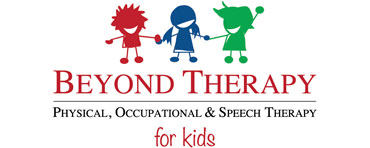Research from the American Academy of Pediatrics suggests weaning your baby from the bottle by 12 months of age; however, some begin earlier when their baby is transitioning to food and the use of a straw or cup. This transition is not always as simple as it seems.
Why is weaning from the bottle so important? While bottle feeding provides your baby with his/her proper nutrition during their first year of life; it is not a feeding pattern that needs to hang around for too long. This sucking pattern, a forward and back motion that was learned in utero, over time matures to a more mature/adult like swallow pattern. The continued use of a bottle means continued use of the immature swallowing pattern thereby continuing a habit which further delays the development of the new mature patterns needed for feeding and swallowing.
If bottle feeding over stays its welcome, it can have an impact on other parts of development. This can impact the appropriate development of the oral motor structures such as the position of the mouth and tongue at rest, formation of the palate and teeth, and the formation of a mature swallow pattern. When these structures are unable to form properly, problems may arise in feeding as well as speech development. Don’t Delay! Get rid of the bottle TODAY!
Here are three tips to help you say Bye Bye to Bottles!\
- Start by reducing the number of bottles given per day until you are down to the very last bottle.
- Once you’re to the final bottle, reduce the amount of milk given in the bottle until you’re only
giving about 1-2oz. Once the milk is gone, the bottle is gone!
*Many times the bottle is more of a comfort than a nutritional need. You may want to try replacing this
bottle with another comfort item such as a blanket or reading another book at bedtime. - Now, replace the bottle with a new cup! Let your toddler be a part of picking out the new cup and
getting rid of the bottles.
If you think your child may have difficulty with feeding, swallowing or a speech delay, talk with your
pediatrician and get support from a trained professional.
Written by: Taylor Hilbun, CCC-SLP
Helpful Resources:
https://www.aap.org/
https://mymunchbug.com/
